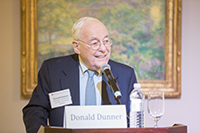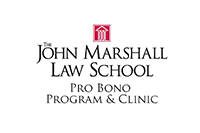Copyright laws are woefully outdated, but lawmakers in Washington are finally starting to pay attention and take action. That’s according to U.S. Register of Copyrights Hon. Maria A. Pallante, who addressed hundreds of experts and law students at the 58th Annual Intellectual Property Law Conference held Feb. 28, at The John Marshall Law School in Chicago.
“In Chicago, there is so much culture and where there is culture, there is copyright,” Pallante noted, as she provided a birds-eye view of how copyright law is evolving in Washington, D.C., and how that affects intellectual property law across numerous disciplines.
The way creative works are made and disseminated is very different today than it was when the Copyright Act was last updated more than 30 years ago, and that must be addressed, Pallante said.
John Marshall’s Center for Intellectual Property Law hosted experts from around the country who discussed the latest in patent, trademark, copyright and trade secrets law. This year is the 75th year the Center has been offering its graduate programs.
Among the hottest topics currently affecting intellectual property law and legal education is the fair use doctrine, Pallante said, noting that exemptions implemented in past years have become less relevant. This is becoming particularly tricky in the burgeoning world of online distance education, she said. For example, because the distance education exemption can be complicated to apply, people often instead apply fair use standards.
While in Chicago, Pallante also met with the city’s chapter of the Recording Academy, where among artists’ biggest concerns is the use of cyberlockers that threaten their livelihood by sharing their work before an ability to make money, she said.
Pallante lamented that some politicians and lobbyists in Washington have downplayed the need to change existing copyright law because the prospect of changing it may be too burdensome to address. But she expressed optimism that more lawmakers have engaged in recent years in greater debate and discussion about implementing changes.
Doris Long, director of John Marshall’s Center for Intellectual Property Law, praised Pallante and the conference’s vast dialogue on intellectual property law issues, including a new focus on changes in international law that U.S. practitioners can expect.
John Marshall boasts the 12th-ranked IP program in the nation and has been a consistent leader in intellectual property law since the creation of its programs 75 years ago.


